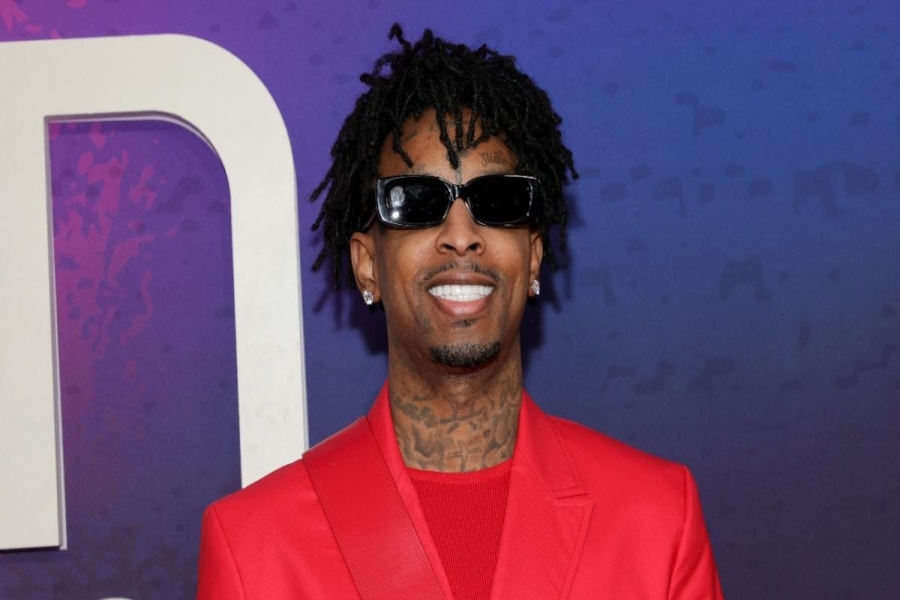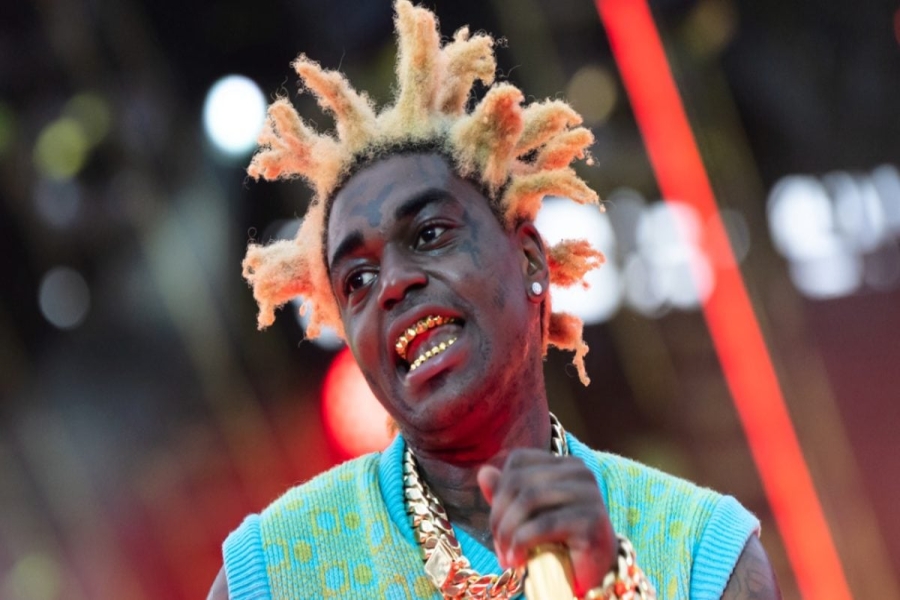"Is it hot in here or is it just my career getting ready to take off?" Wynonna Judd asked the packed house at Nashville's Cannery Ballroom during the Americana Music Association Festival & Conference late last month. For 45 minutes, the flame-haired singer, best known to country fans as one half of mother-daughter duo the Judds, charted new musical territory that's far removed from "Mama, He's Crazy" and "Grandpa (Tell Me 'Bout the Good Old Days)" but retains the unplugged spirit of those acoustic-based early hits.
Fronting a new band, Wynonna and the Big Noise, with husband Cactus Moser producing and backing her on drums (the same vantage point he had as a member of Eighties country group Highway 101), the vocal powerhouse has found an even stronger voice, a deeper soulfulness, and a whole new fan base within the roots-oriented Americana community.
Released in February, Wynonna & The Big Noise blends the belter's bluesy swagger with her acoustic Kentucky bluegrass roots and top-notch songwriting from a variety of sources. The results, thus far, have been a Top Ten LP on the Americana chart, additional airplay at Triple-A (Adult Album Alternative), high-profile gigs including NPR's venerable Mountain Stage radio show, and legions of newly-converted fans – along with longtime followers – leaving the band's live shows with a greater sense of Judd's wide-ranging artistry.
For Judd and Moser, who collaborated with Jason Isbell, husband-and-wife blues musicians Derek Trucks and Susan Tedeschi, and songwriter Travis Meadows, among others, on the new LP, the home-studio recorded project was about busting boundaries, eschewing comfort and breaking old habits.
"We are all very habitual," Wynonna tells Rolling Stone Country. "The way that we shower, the way that we go to work, sometimes the days we have can feel a bit like Groundhog Day – if we're not careful we can slip into auto-pilot. When Cactus and I teamed up, he put me on this new path called living deliberately. We made a deliberate choice to not market this album before we made it. We actually made a record authentically, in a way that I honestly have never done, just kind of going with the flow, which is just not the Judd way. We always rehearsed in a $1 million studio with producers and powerful players that are on the A-list. Now we're in a different world. What's so great about the realm of Americana is that we can just be ourselves. We don't worry about perfectionism and awards and statistics. It's about enjoying ourselves."
"We're here in this genre because it's very real," says Moser of the Americana format. "There's a real high-gloss sense in what pop music is, which encompasses country music and what that has become. When we were those kind of acts, we were a little different because it was a different time-frame, but you're really going in hearing some musicians playing along very often with Pro Tools or whatever technology they're using. The NPR Mountain Stage show that we played, they would giggle if people showed up with that kind of presentation. You watch it and you go, 'Oh my gosh, you'd better bring your A-game musicianship, artistry and singing to the stage because there is no hiding behind the façade of pop music."
Judd confessed to being "shocked, if not surprised" at the reception they've received taking this LP on tour. But as someone who has never been easily silenced, she admits to being fairly gobsmacked by the number of first-timers at their shows.
"I ask the crowd to raise their hand if they've never seen me in concert before," she says. "Two-thirds of the crowd raise their hands and I'm like, 'Whoa!' I actually look back at Cactus and ask, 'Do you see what I see?' And that's every day! I thought I had met everybody. It's a new day … it feels very authentic. I've worked so hard on being tough and alpha. I'm a Judd. I wasn't raised to be a wallflower. I was raised to go out there and kick butt. It's just really nice to be able to sit there and sing a song like "Things I Lean On," that Jason Isbell sang on … and actually witness someone feeling the intensity of that song. It's a really cool intimacy that I'm enjoying with the fans."
While artist-fan intimacy may not have been a benchmark of the arena-based shows the Judds were performing at their zenith, one of the most striking aspects of the duo's early success certainly carries over to the Big Noise. The lack of electric instrumentation on the Judds' first three LPs ran counter to much of what was happening in early-Eighties country music.
"Mom and I started out with just acoustic guitar and being very rootsy, at a time when Urban Cowboy was huge and production was, as my mother said, 'Slick as snot on a doorknob,'" Judd explains. "It got very pop, with perfection and everything slick and cool and produced. Then, here comes us … with Don Potter playing guitar. We were strictly acoustic until years later when Carl Perkins played the first electric guitar on 'Let Me Tell You About Love.'"
"Where she came from, that was the birth, the continuous pathway to what we have now come to call Americana music," adds Moser. "The Judds, that kind of music would have been in the middle of this movement today. For me personally, with what I did with Highway 101, we came from that West Coast side of things. Chris Hillman, Gram Parsons, the Flying Burrito Brothers, Poco that whole thing birthed what we now call Americana. Chris Hillman was my father figure, if you will, in my musical career in Colorado and later in L.A. All those things put such a stamp on my life and that's exactly what I'm using and following my heart on, making this first Big Noise record and where we go from here."
As for the outfit's ultimate goal, Judd says it is simply to "get away with as much as possible," which thus far has meant fitting in a bluegrass festival and jazz festival in the same month or going from an audience of 50,000 at an Eric Church gig to California's Coachella festival, or as Judd refers to it, "Hippie Fest."
"We called it that because it was absolute camping and people in tie-dyed T-shirts, with black feet and no shoes for days, and everybody's twirling and dancing and raising Cain," she says, having delighted not only in that experience but the juxtaposition of other venues they've played since the record's release.
"We can go from that to a beautiful old theater that's very proper and everybody's [doing] the 'golf clap,'" she says with a laugh. "We can get away with it because my husband has a bag of tricks. He breaks out the really loud 'thump' stuff and can get down to sitting on a box playing it with his hands. We're going from the biggest casinos to the smallest, most intimate theater. We'll do birthday parties if it's the right circumstance."
Most striking about this rootsy, acoustically-based group is the idea that just four musicians onstage can – and do – make the sizable sound their name implies. But they've managed that feat while at the same time showcasing the work of songwriters, including Meadows, Chris Stapleton, Julie Miller – and Moser himself – to new levels of immediacy and intimacy.
"They're very much about the songwriting," Judd says of newfound fans. "I found that to be very healing for me because I've lived in a world of statistic-making and I've had all those years of, 'OK, how many tickets were sold tonight?' This isn't all, you know, Luke Bryan and posturing and let's see who can drum up the most applause. This is about really telling your story. It feels very intimate, too. It just feels really good to say: 'This song ['Jesus and a Jukebox'] was written by Travis Meadows,' and he's my favorite poet in such a long time that actually writes from his own experience, rather than, 'OK, let's try to truck-and-tailgate into the charts.'"
With the LP's track "Things I Lean On," featuring Jason Isbell, reaching Number Three in Australia, and other cuts from the record garnering airplay, not to mention their nearly non-stop touring, when the couple will settle back down to record a follow-up album remains to be seen. But one of the key lessons Judd says her husband of four years has taught her is to stay rooted in the present but always look to the future.
"It doesn't have to be as much about the next record as it does us fine-tuning our craftsmanship of song creating," she says. "Prince had all these songs in a vault. He was creating every single day of his life. I want to be like that more."








